The document discusses object lifetime in C/C++. It covers the fundamentals of object lifetime including construction, use, and destruction. It also describes the different types of objects - static objects which are compiler-managed and have lifetime from program startup to termination, automatic objects which are stack-based and destroyed when they go out of scope, and dynamic objects which are user-managed and allocated on the free store.
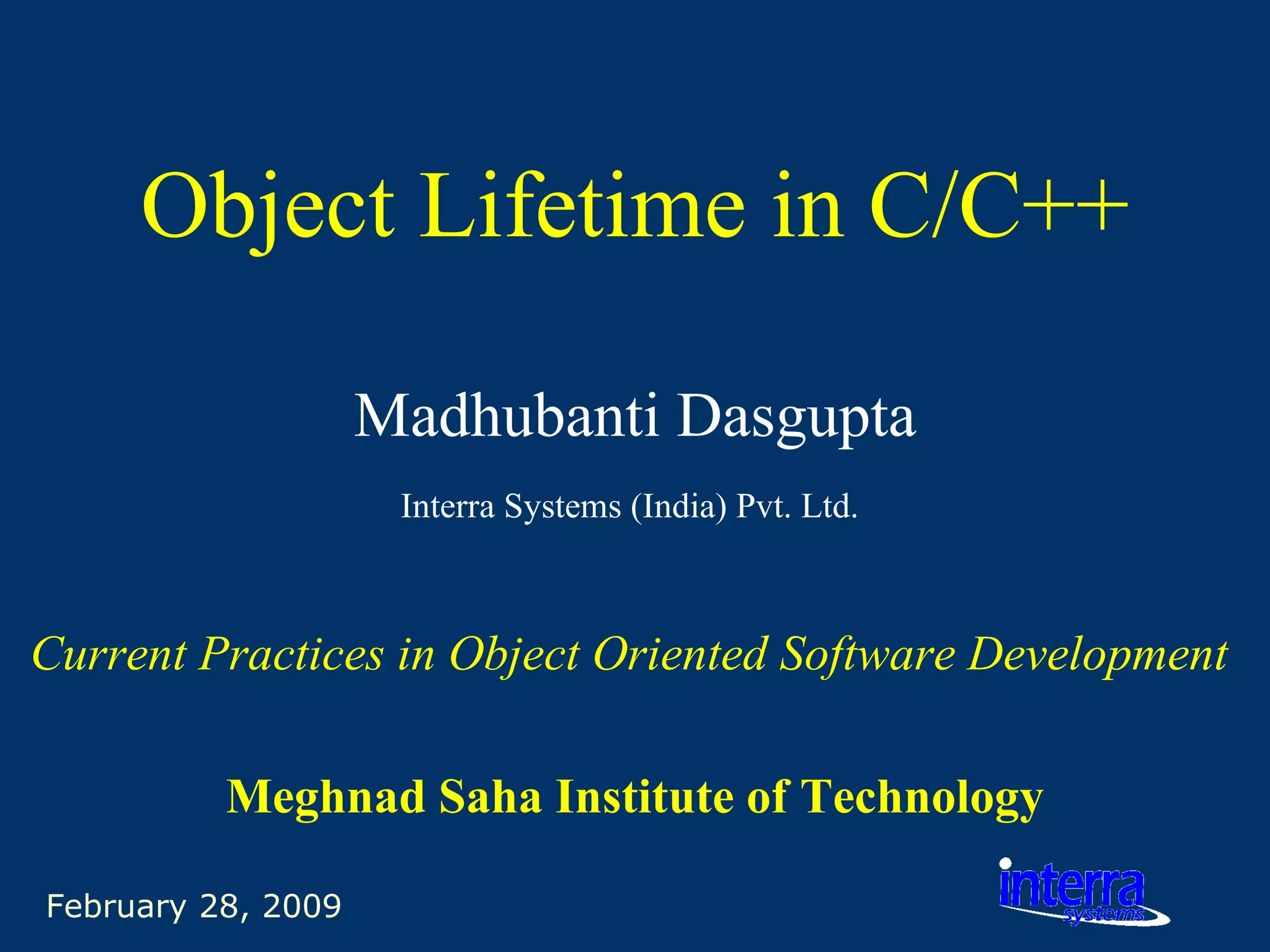
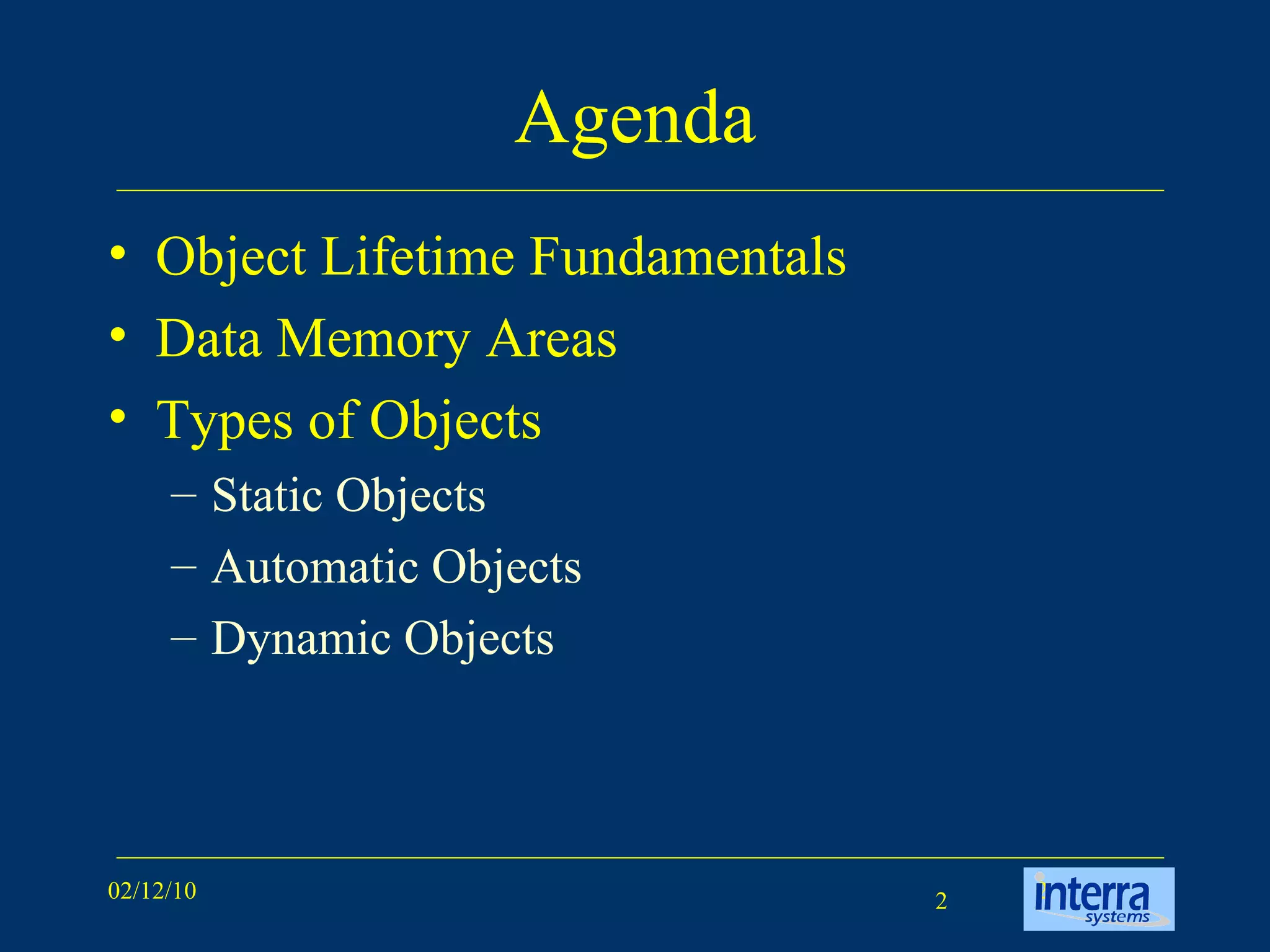
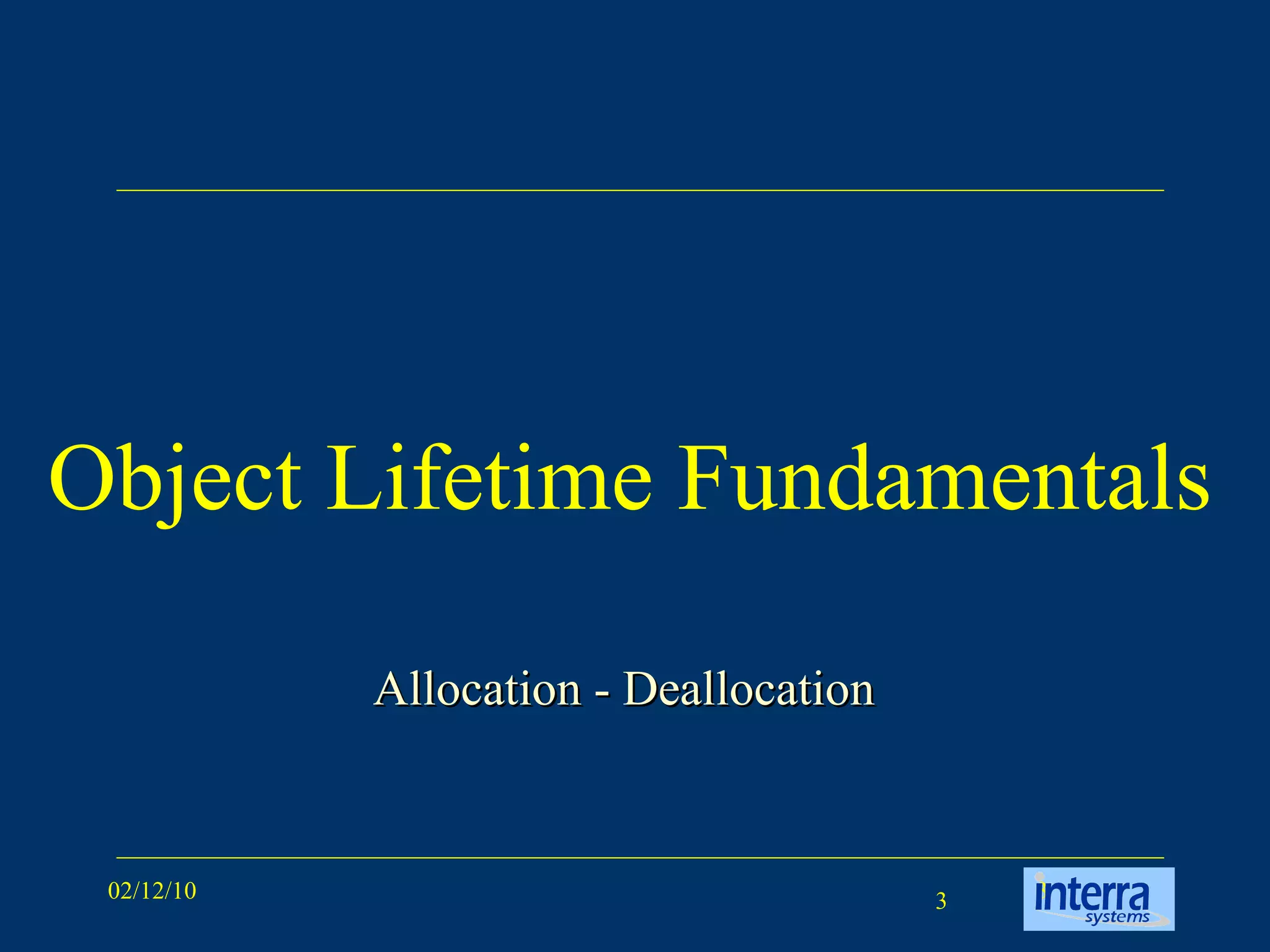
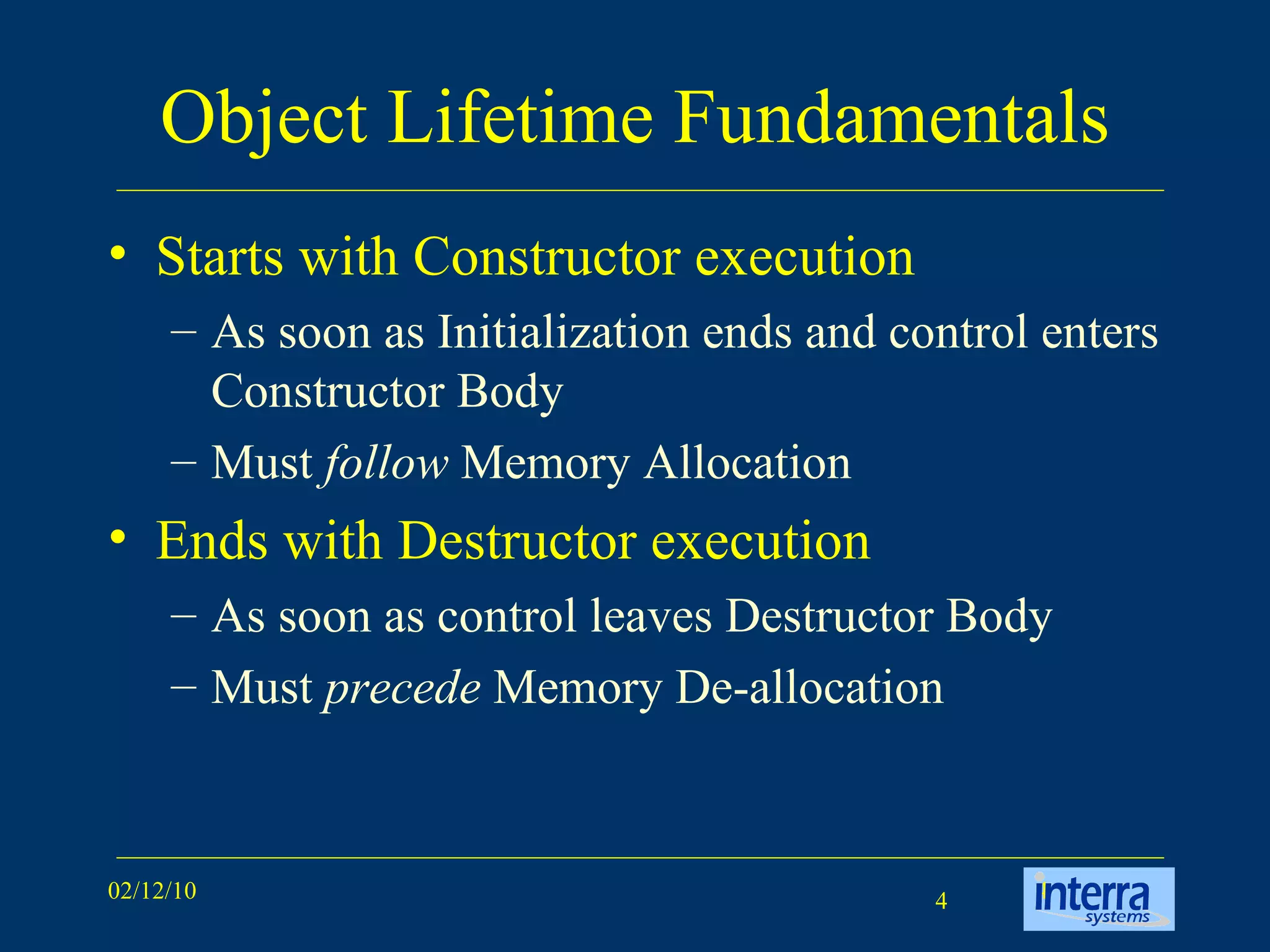
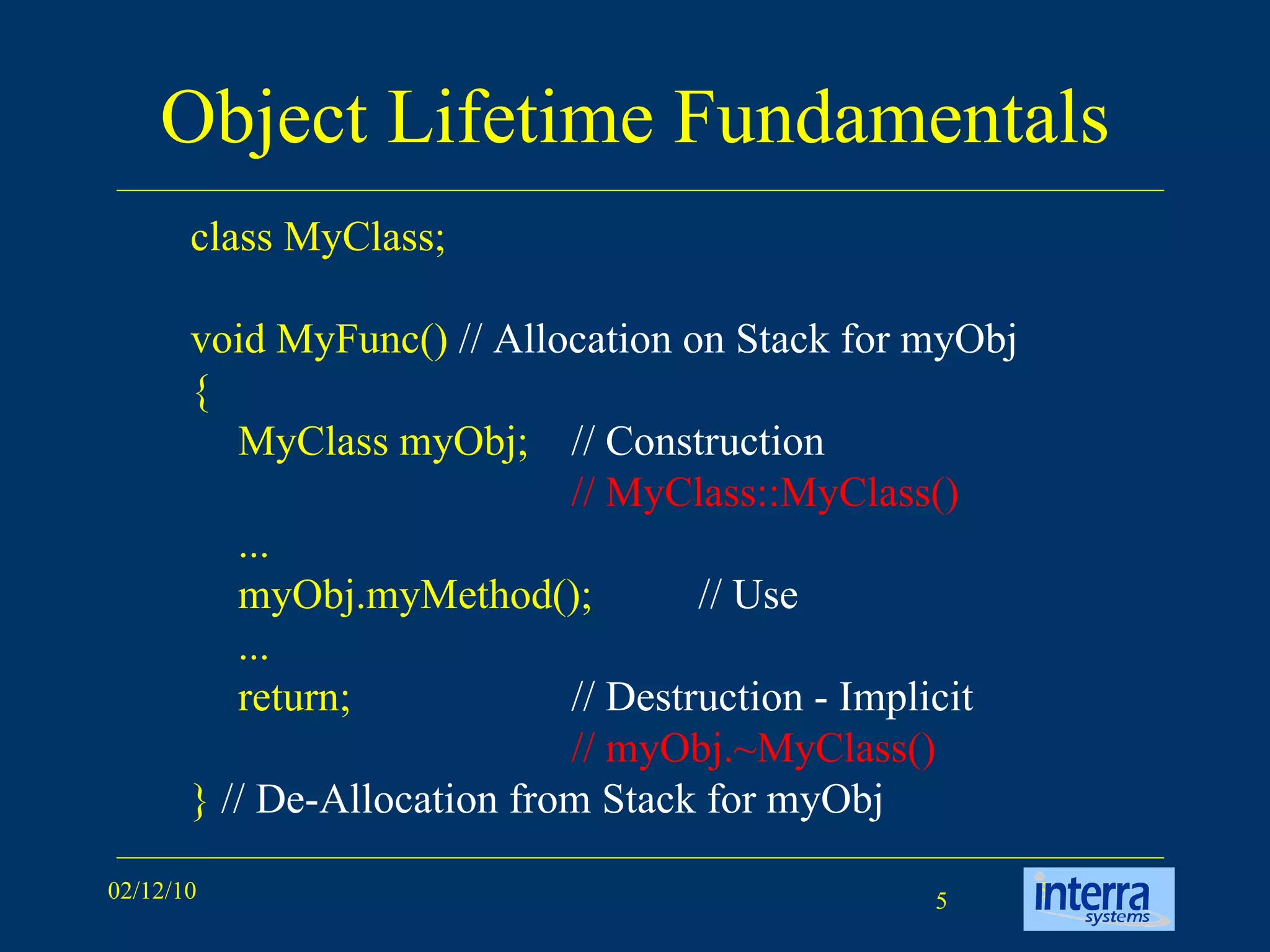
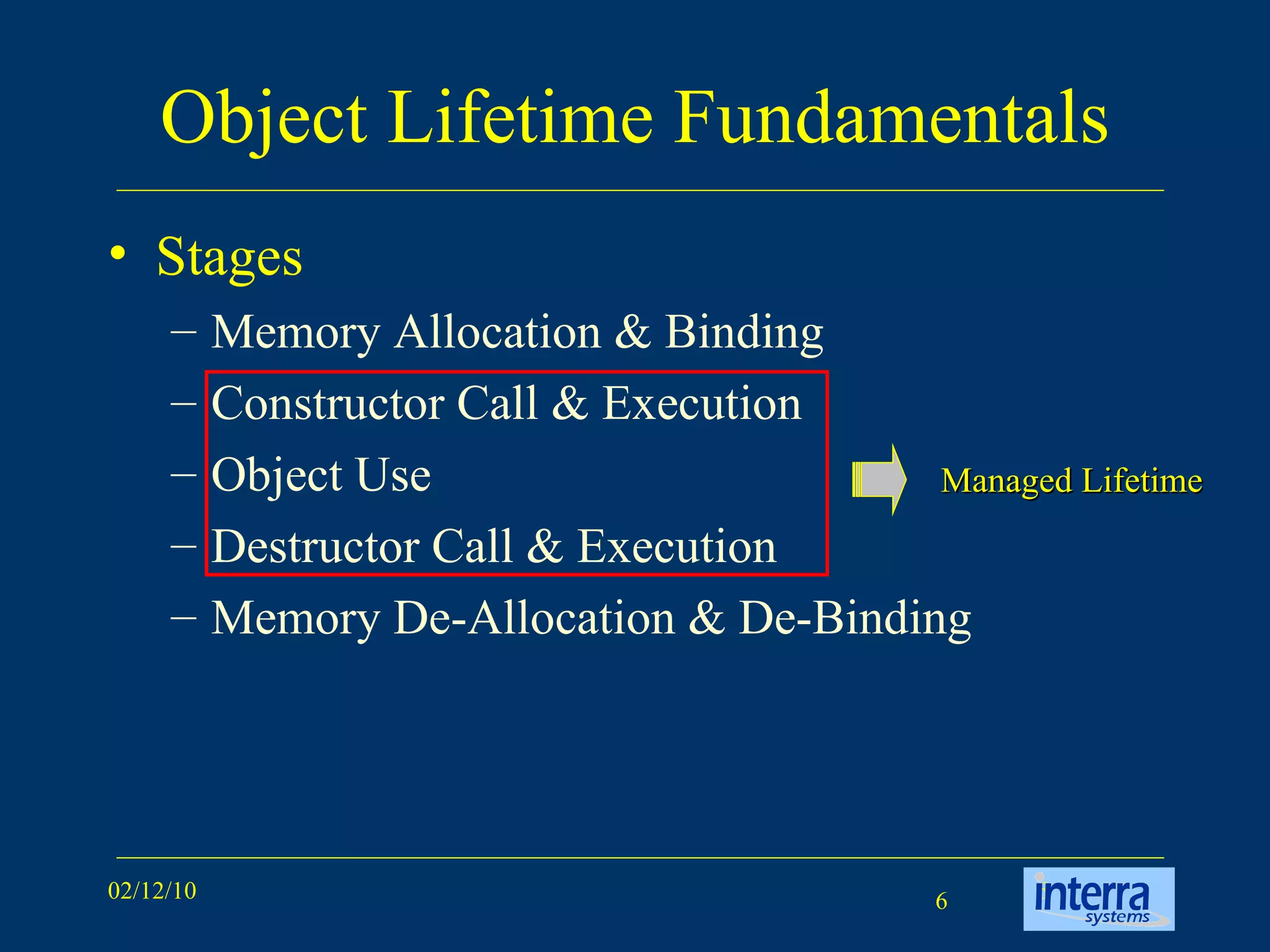
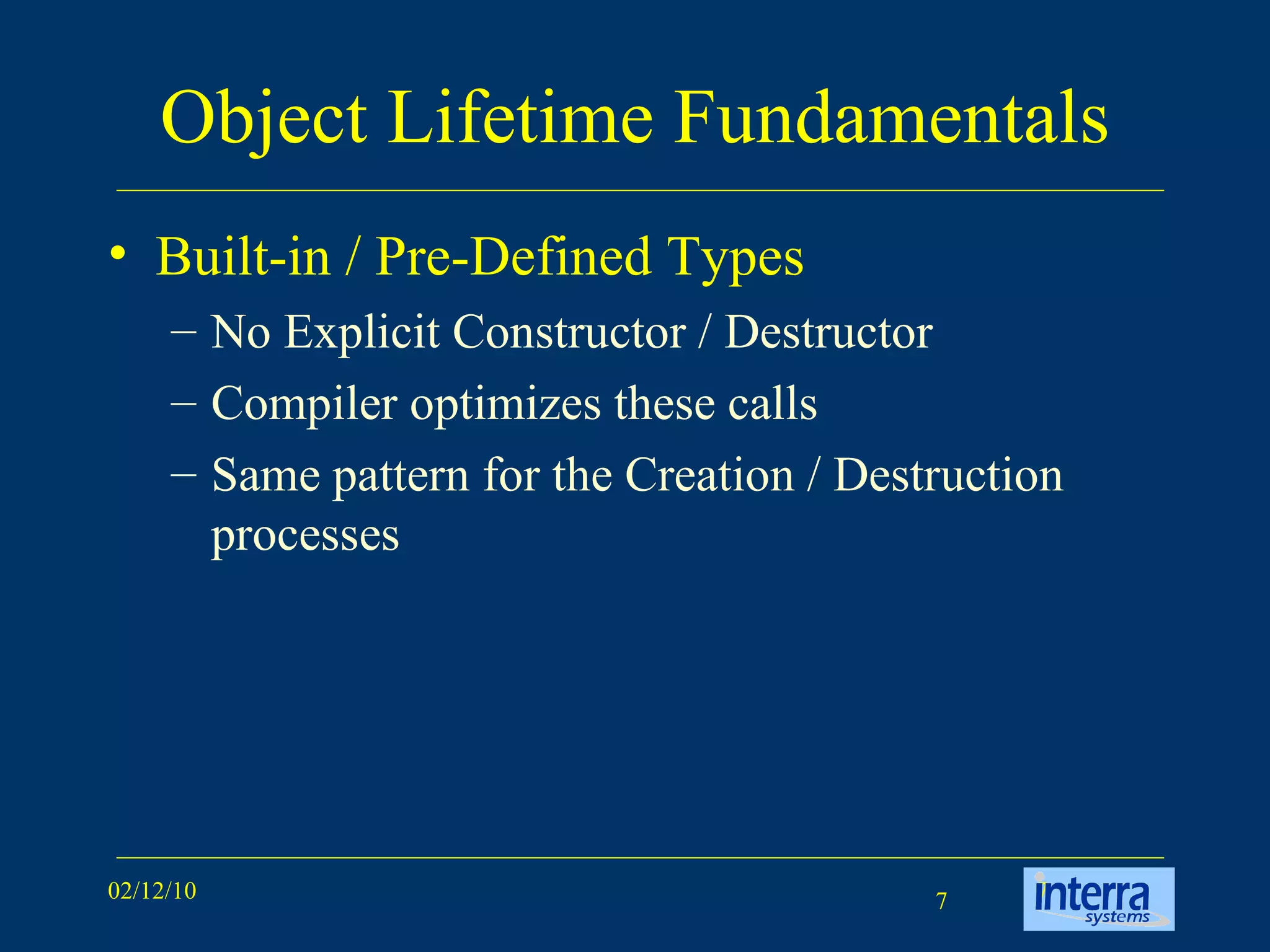
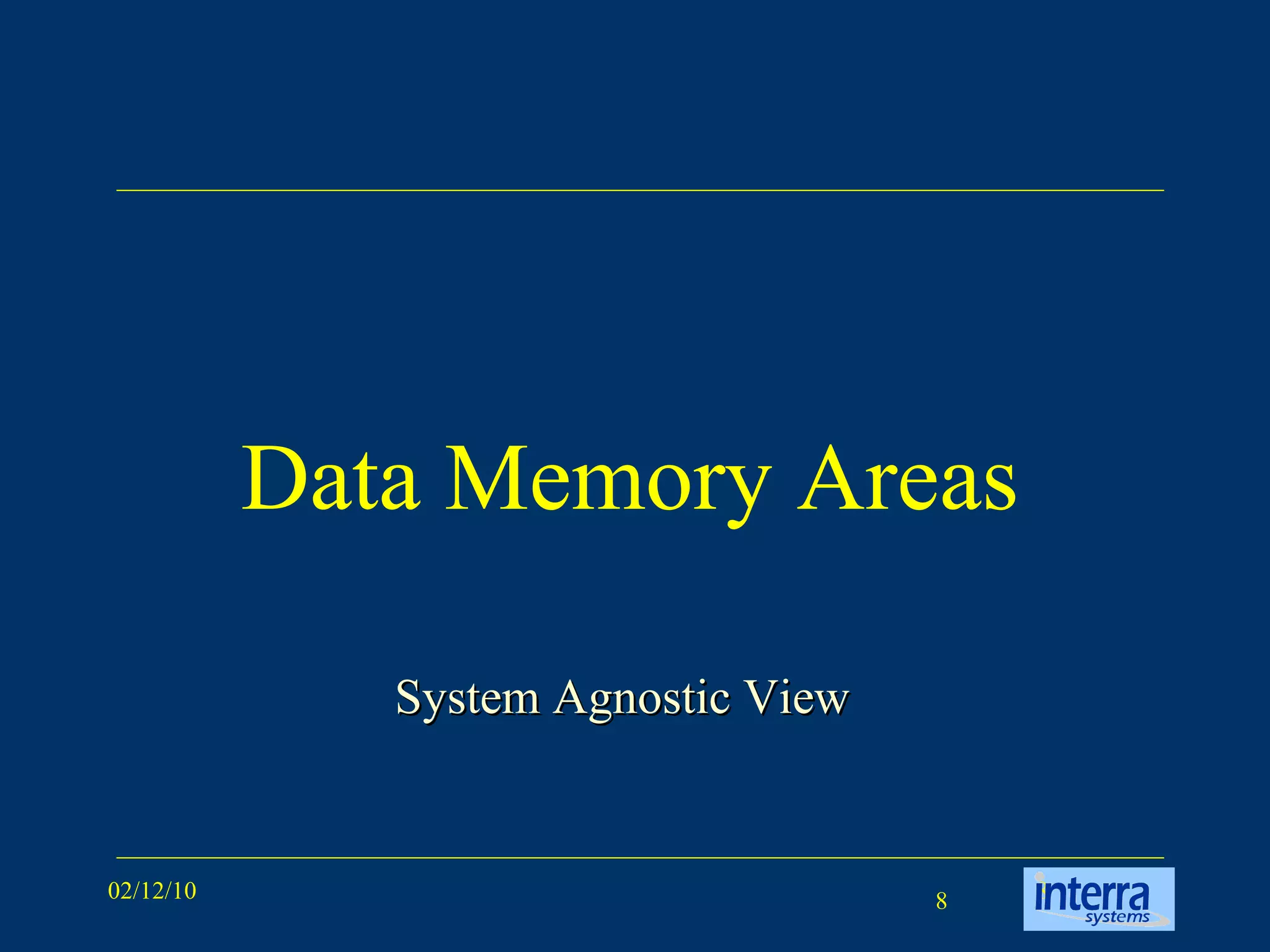
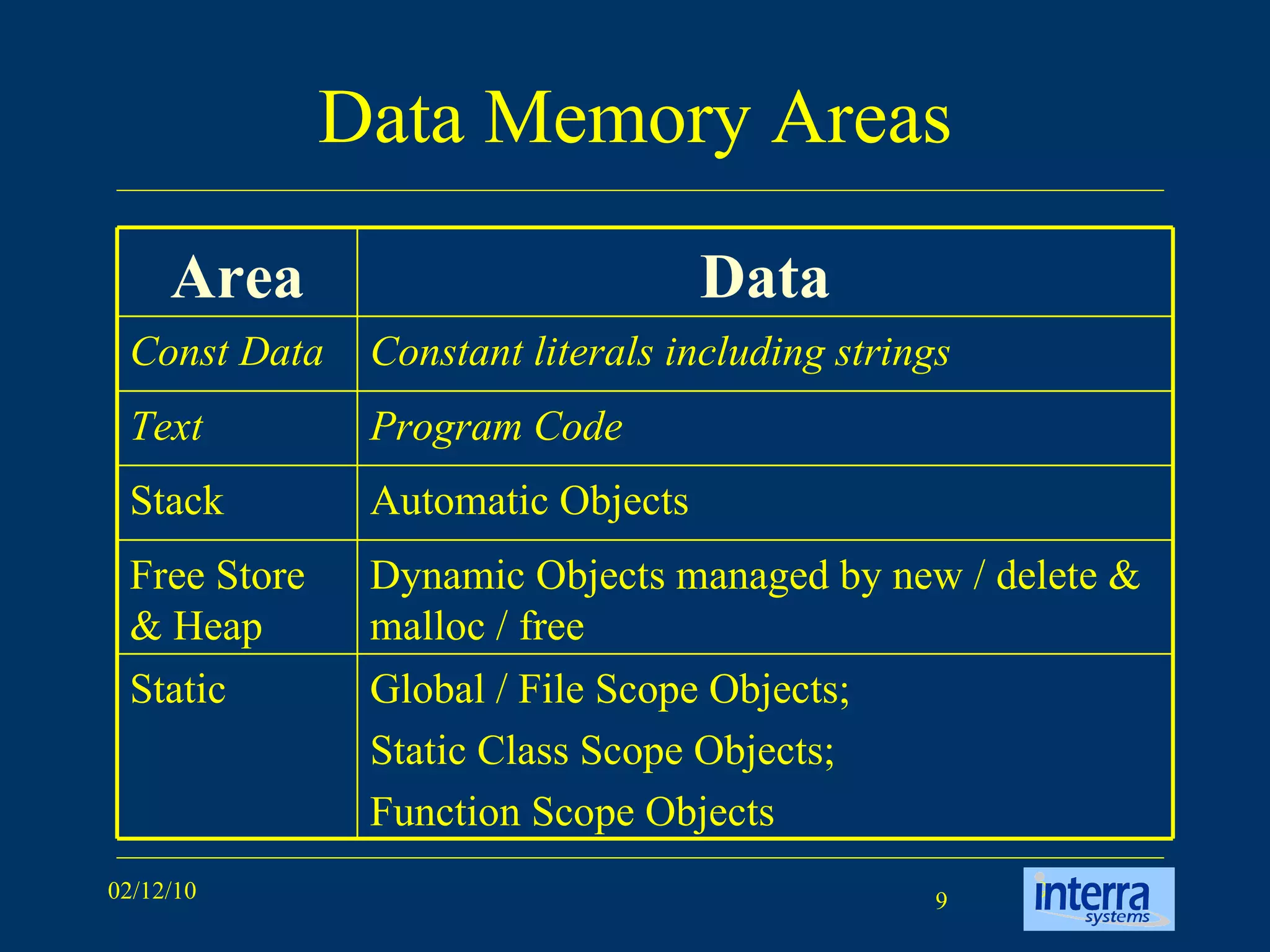
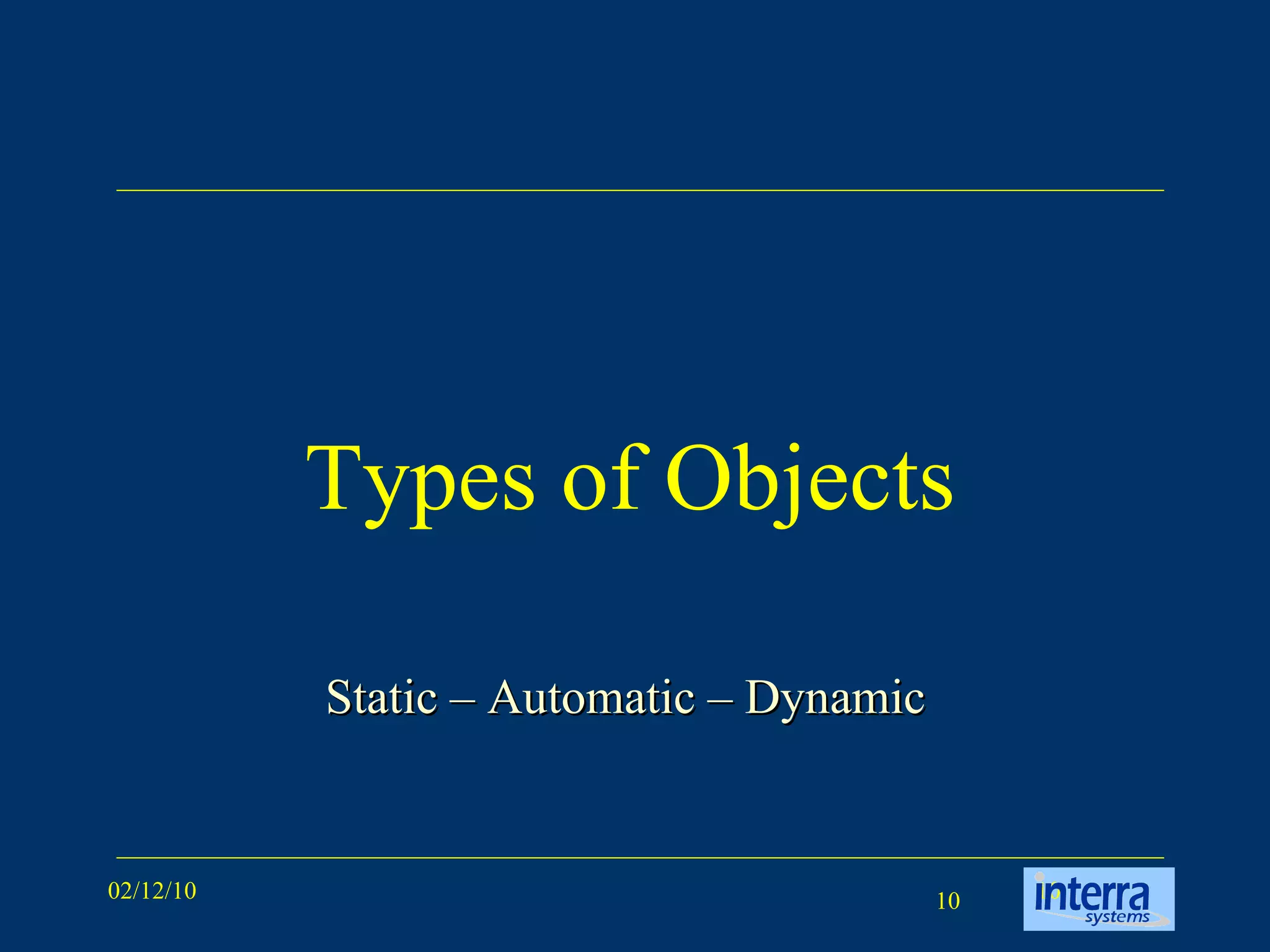
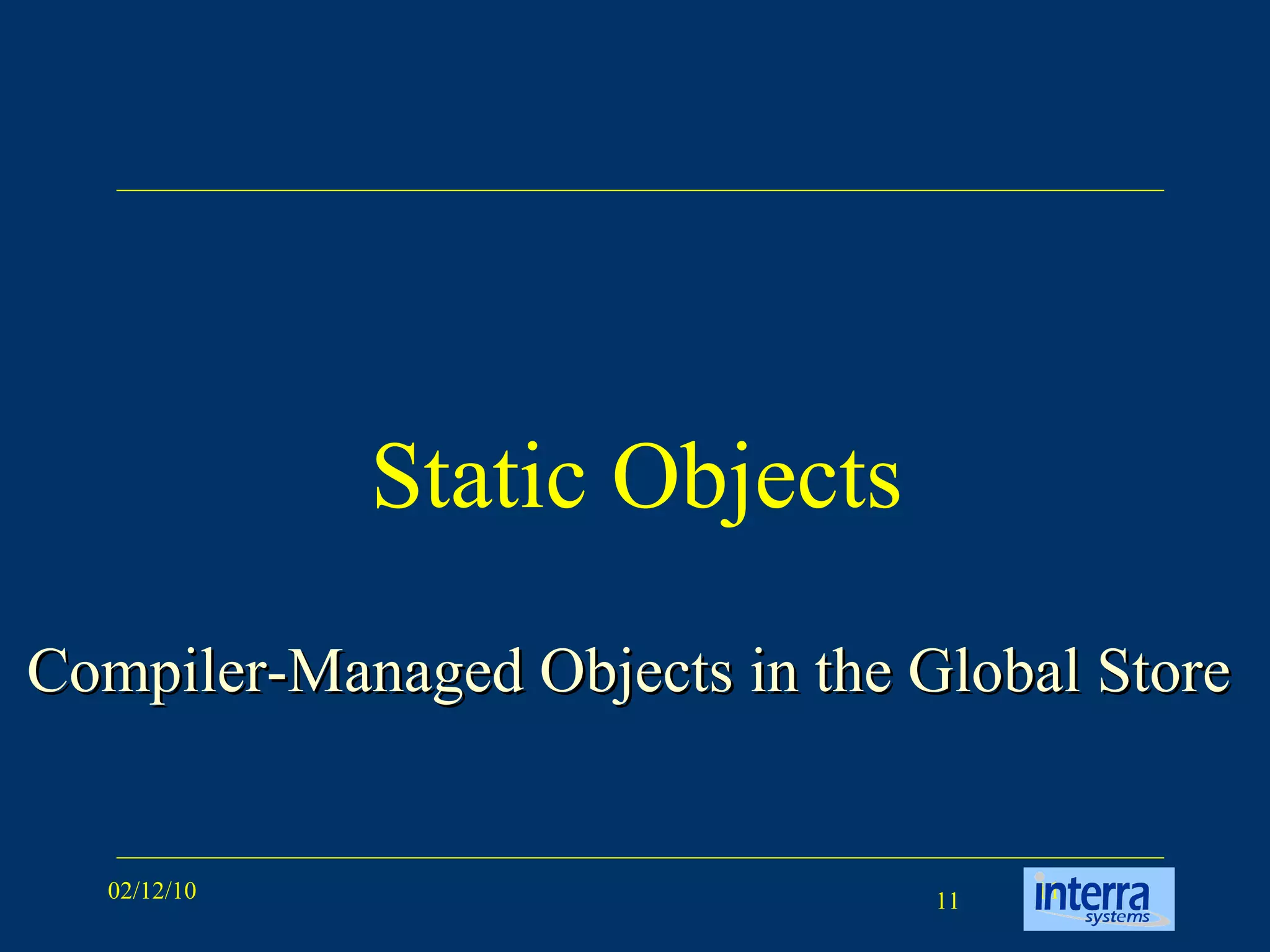
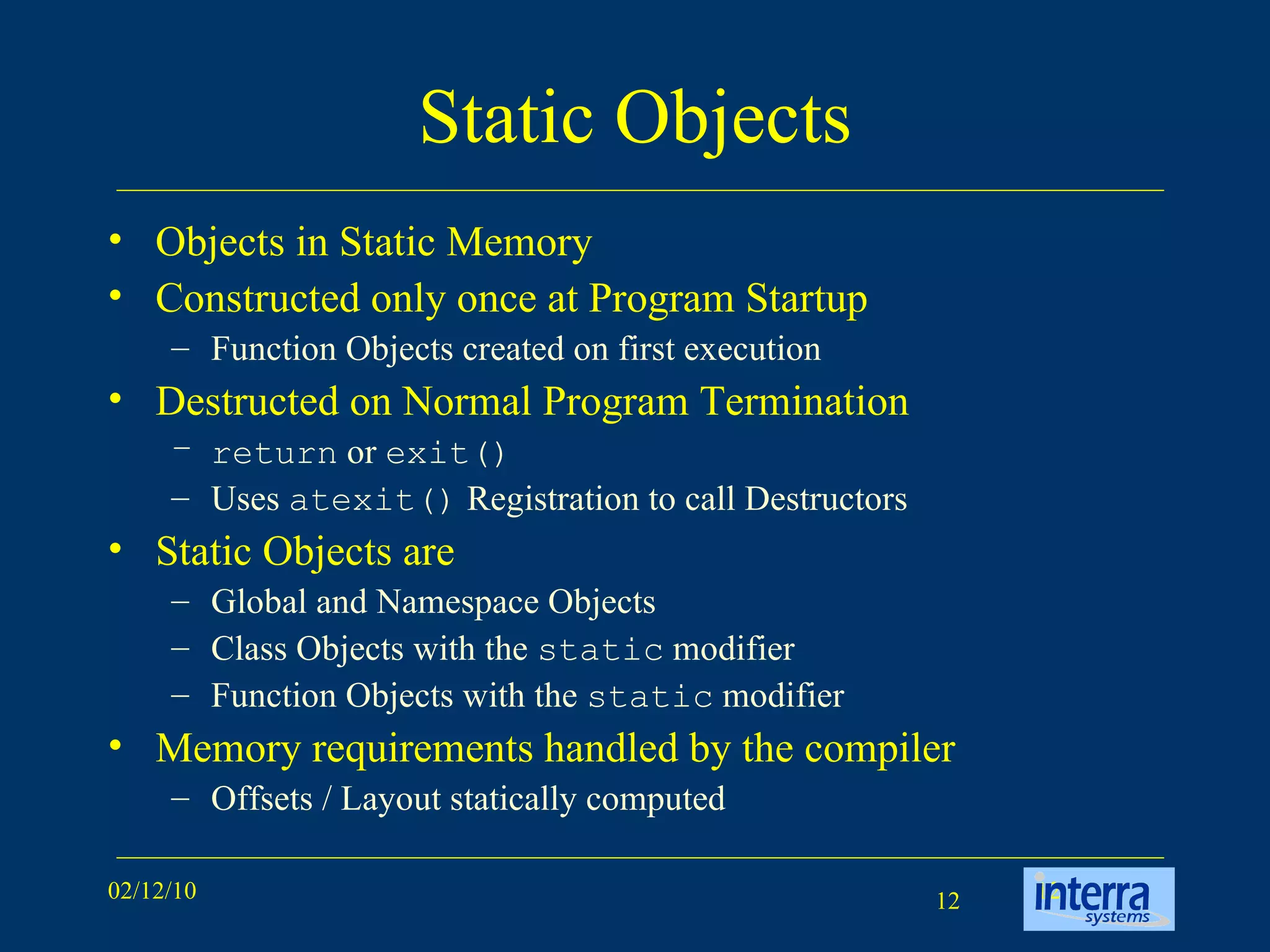
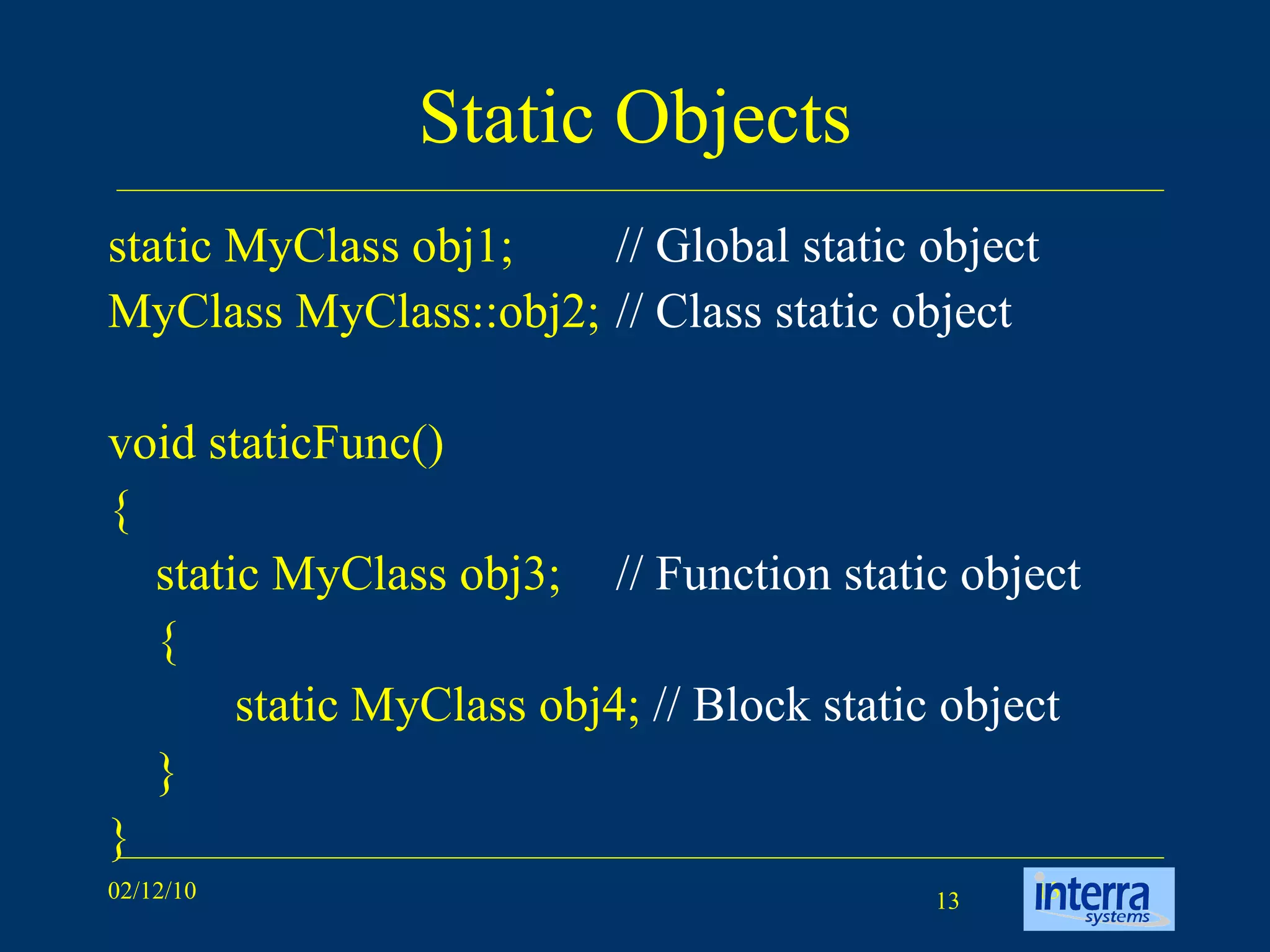

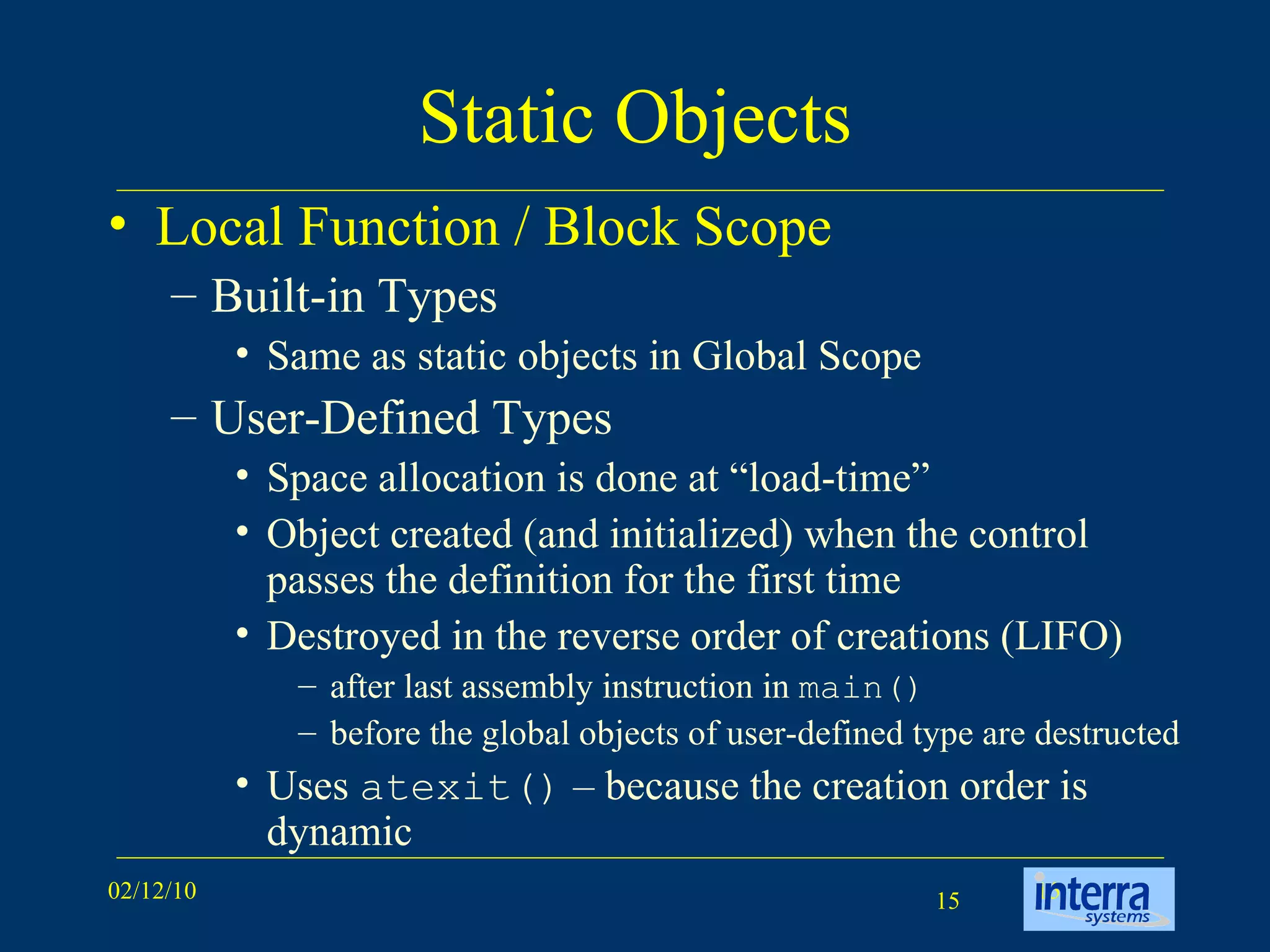
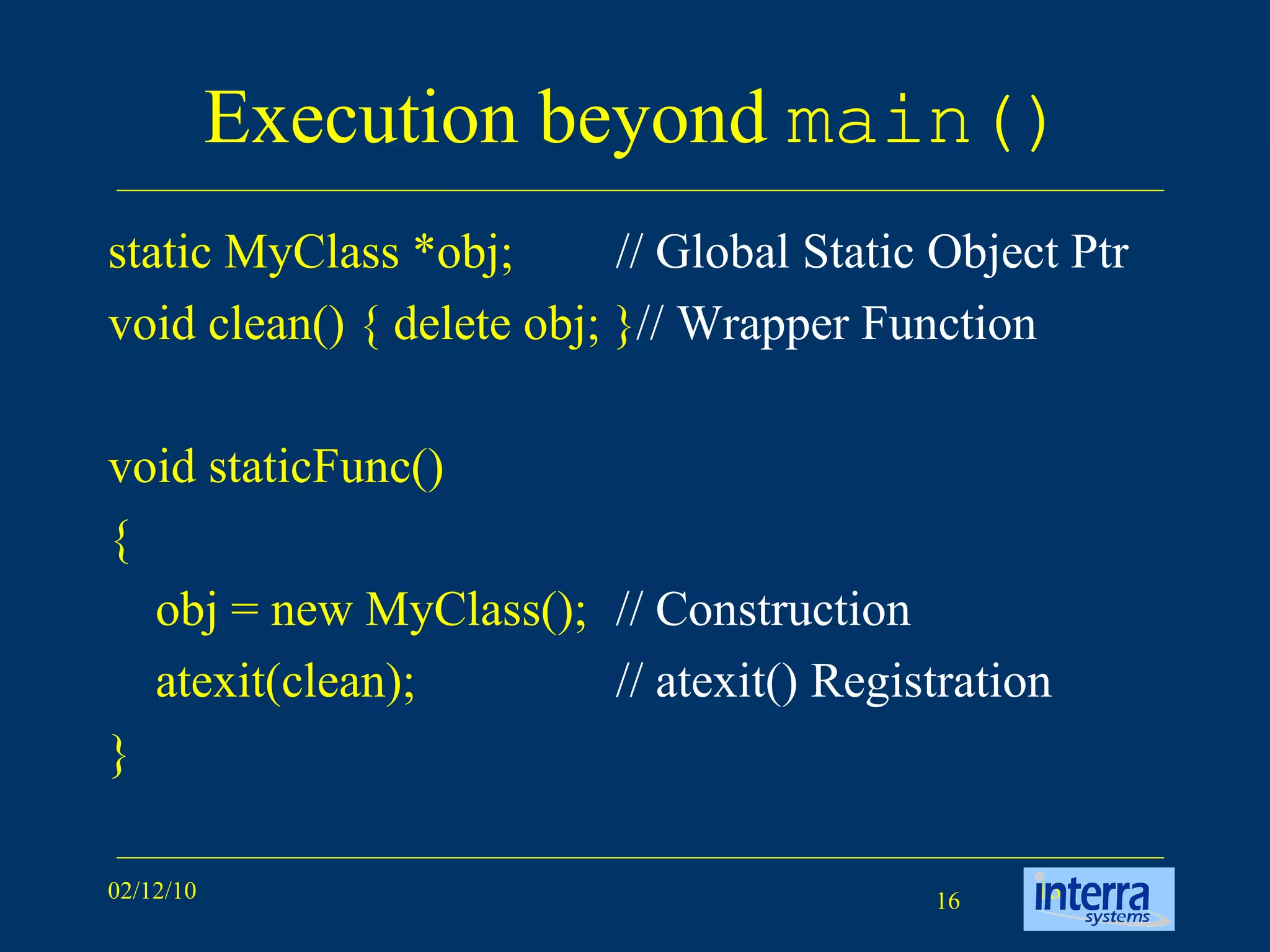
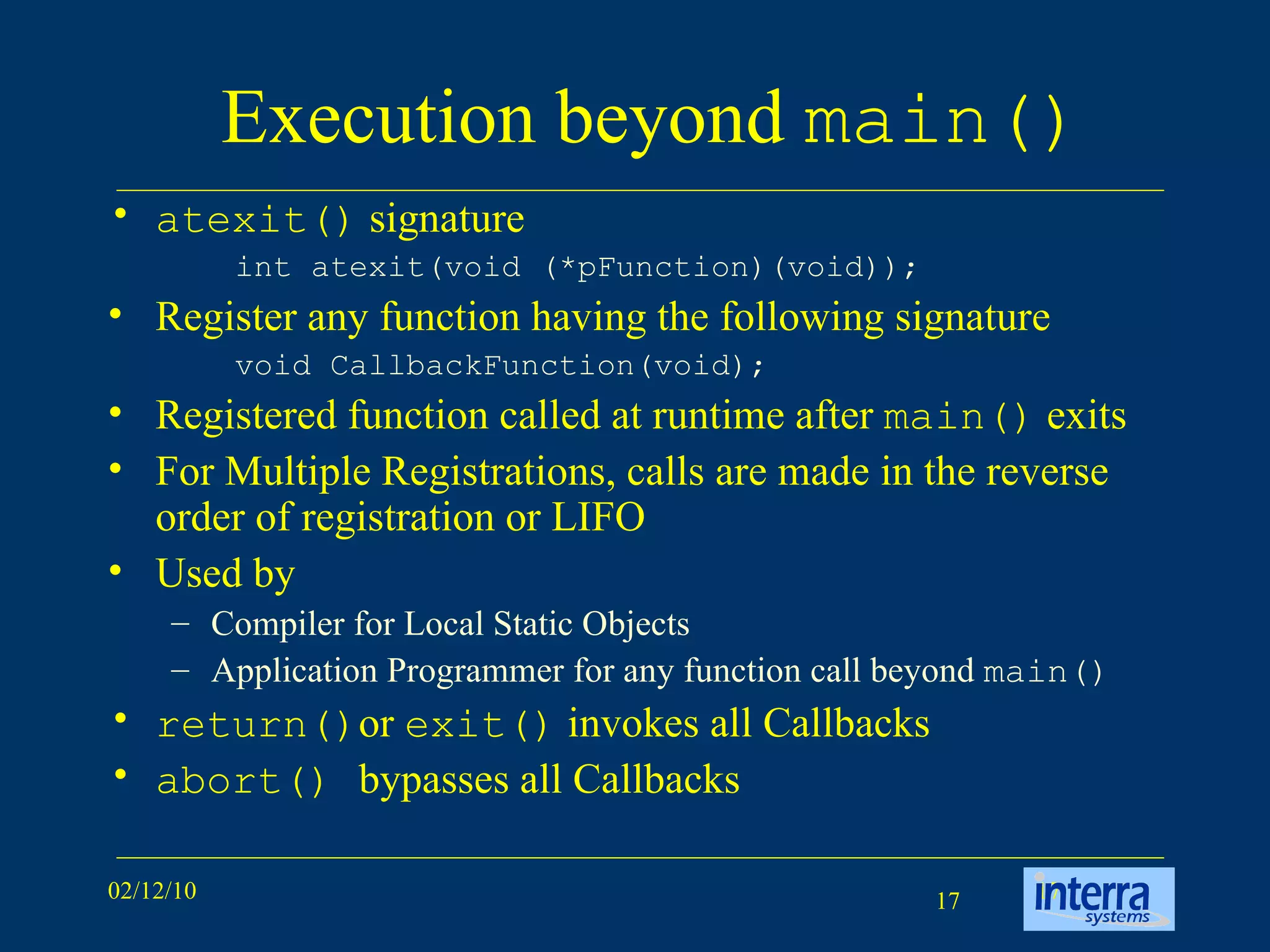
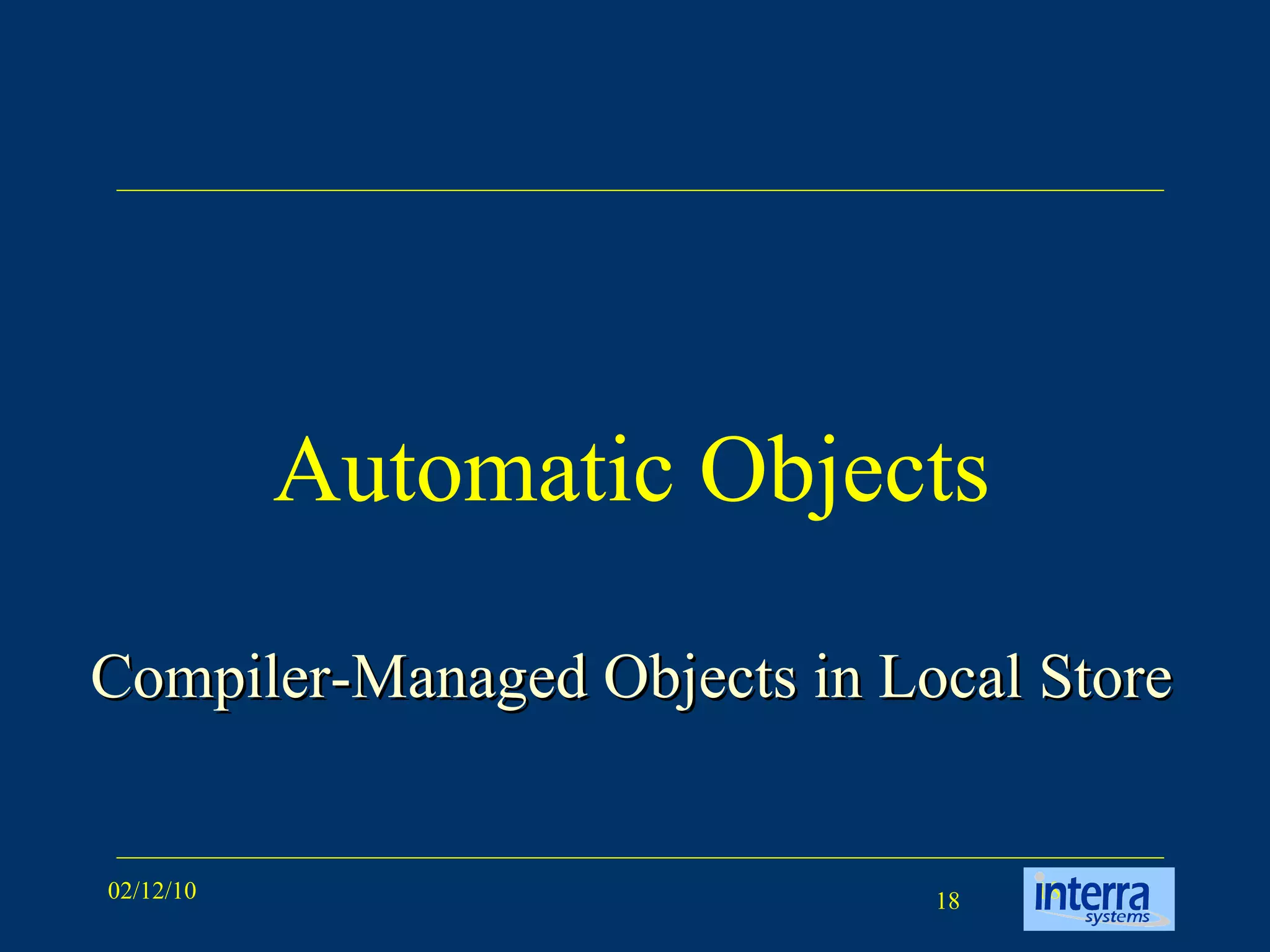
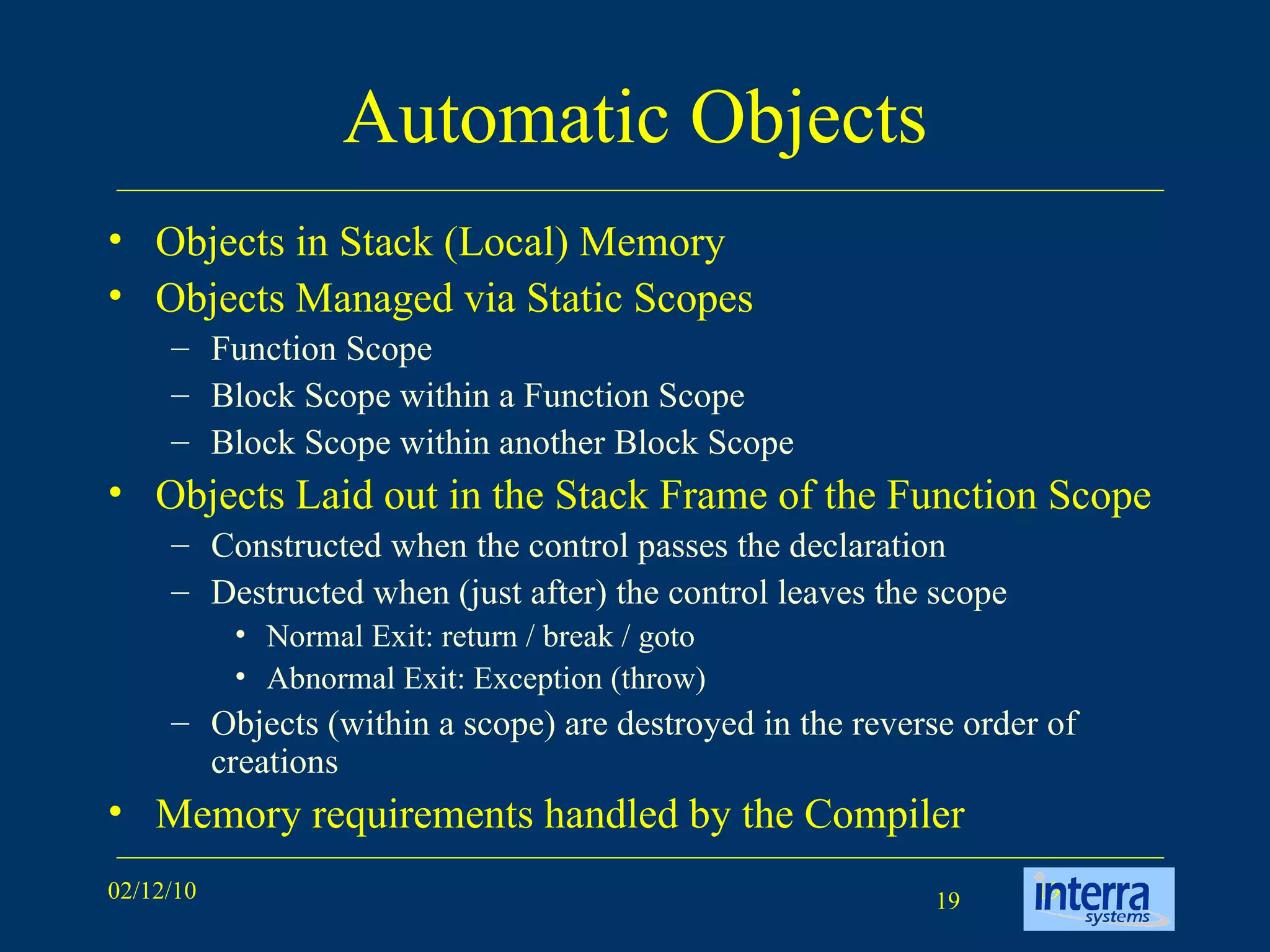
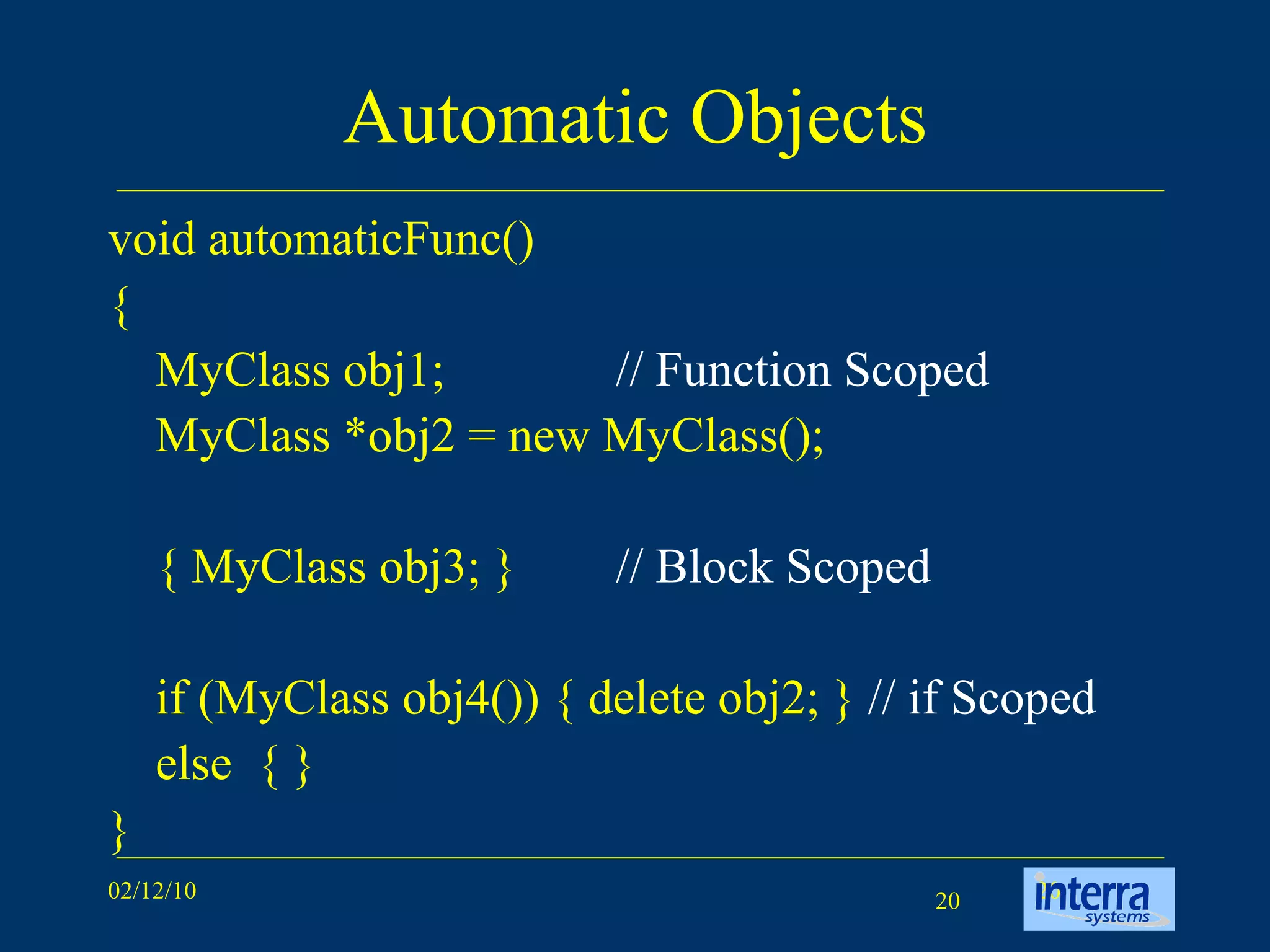
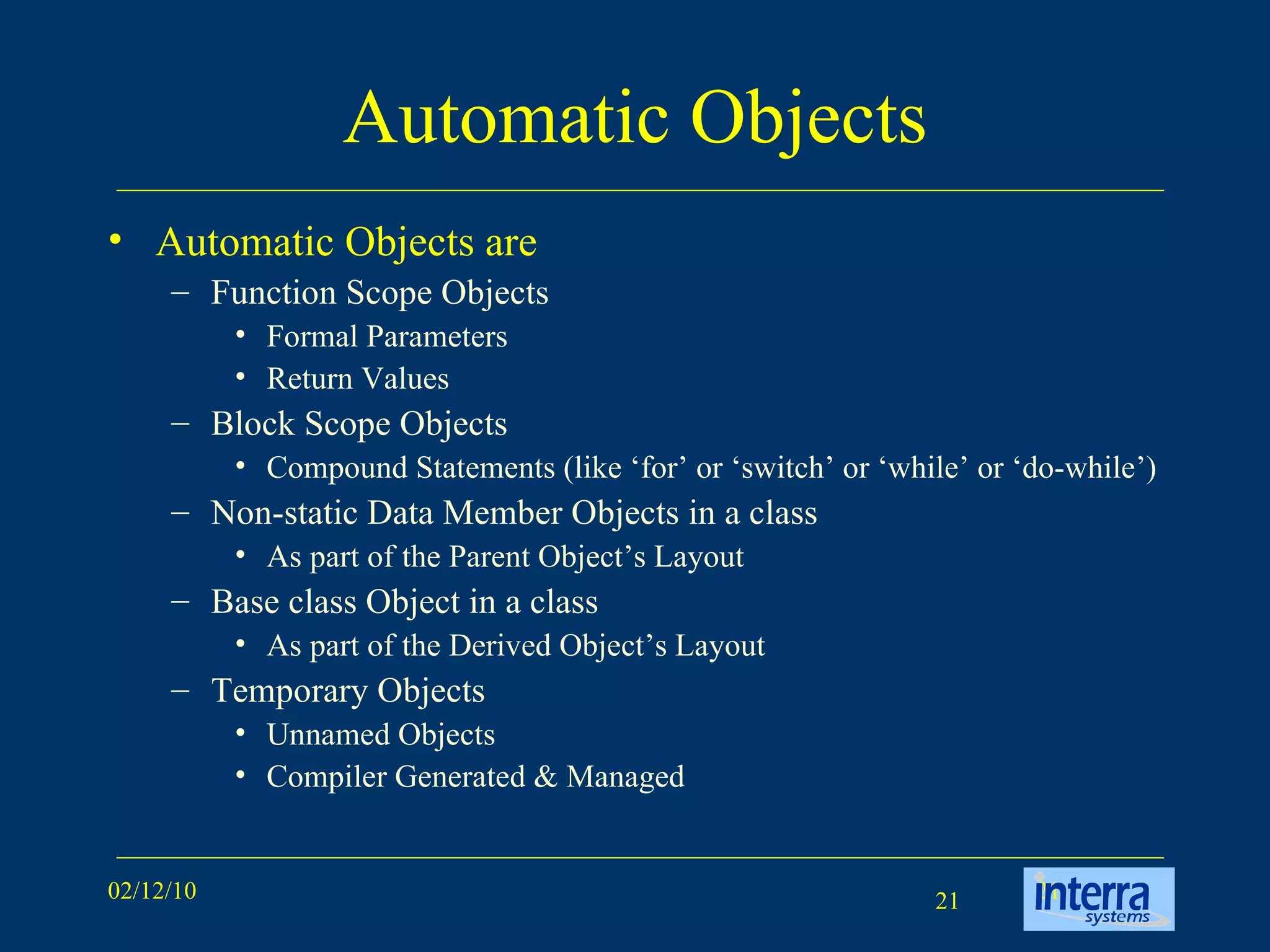

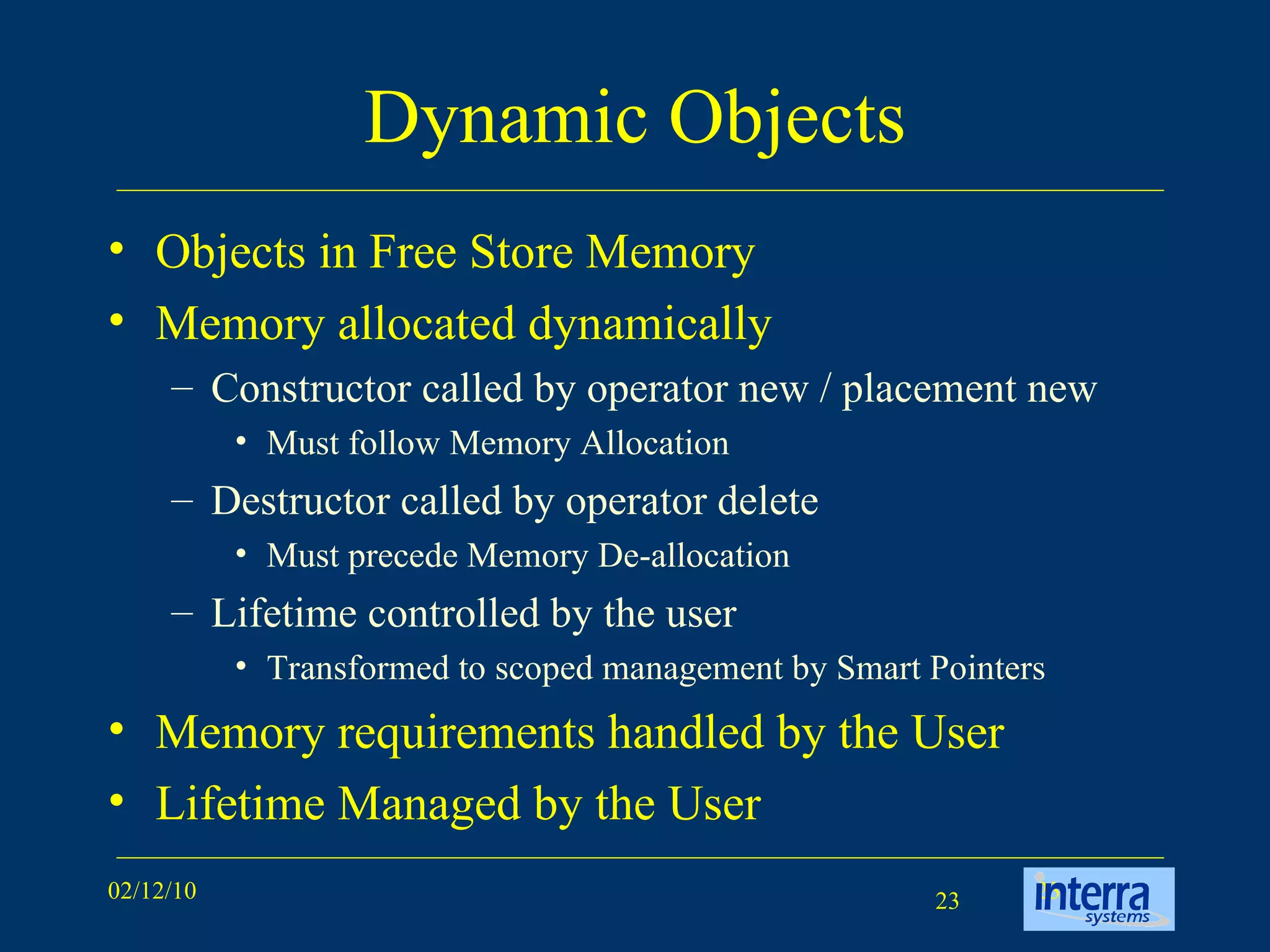
![Dynamic Objects void dynamicFunc() { MyClass *obj = new MyClass(); // Dynamic Object int offset = sizeof (MyClass); char *plBuf = new char [2 * offset]; // Allocation MyClass *plObj1 = new (plBuf) MyClass(); // Construction MyClass *plObj2 = new (plBuf + offset) MyClass(); plObj1->~MyClass(); // Destruction plObj2->~MyClass(); delete [] plBuf; // Deallocation } // Dynamic Object ‘obj’ Leaks Memory](https://image.slidesharecdn.com/objectlifetimeincc-12659976724878-phpapp02/75/Object-Lifetime-In-C-C-24-2048.jpg)
